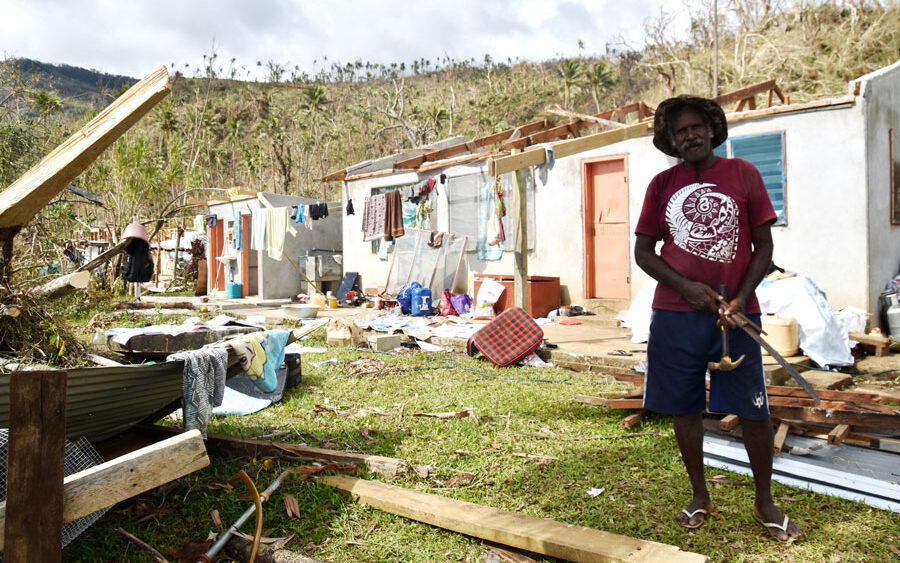Cyclones and COVID: The South Pacific's double whammy
And how the church has come to the rescue
People in the Pacific region are used to dealing with disasters – and to being in lockdown. During cyclone season, communities often bunker down in their homes for a week or more, and have learned to manage without water and electricity.
But when COVID-19 hit – at the tail end of the particularly devastating Cyclone Harold – it presented a whole new challenge for South Pacific communities.
Tim Costello's word for right now is "Hope"
In 'iso' I have become connected
“We had a severe tropical cyclone – Cyclone Harold – in April, just as we, in Fiji, were preparing to celebrate Easter. That cyclone swept through the Solomon Islands, swept through and devastated Vanuatu severely, came through Fiji and affected some of our outer islands and then finished off in Tonga. So you’ve got four Pacific Island countries being affected,” explains James Bhagwan, Methodist minister and general secretary of the Pacific Conference of Churches (PCC) – the region’s peak ecumenical body.
Bhagwan is speaking with Tim Costello on the latest episode of his Hope in Crisis podcast (on the Eternity Podcast Network) about the immense challenges facing the Pacific region during the past few months.
The toll of Cyclone Harold was immense, claiming 31 lives and destroying homes, schools and medical clinics, as well as damaging food crops and water supplies. Vanuatu was hardest hit, with more than one third of its population living in the worst affected areas. In the country’s Sanma Province alone, about 90 per cent of the population lost their homes.
But before locals had time to deal with the havoc and trauma, COVID-19 finally arrived in this remote region. And while the pandemic’s late arrival did allow Pacific nations to minimise its spread by closing borders, they were not shielded from the resulting economic crisis.
In a region dependent on tourism, hundreds of thousands of workers lost their incomes.
“While we are small countries, those numbers mean quite a bit in terms of percentages. We are also countries that don’t have the ability to boost the economy in terms of the injection of funds into businesses. In Fiji, for example, the only recourse the government has is to make [early] superannuation available to those who have lost jobs,” says Bhagwan.
He adds that economic stresses have also led to food insecurity and an increase in domestic violence.
“When you see your brother or sister in need, you give what you can to support …” – James Bhagwan
Fortunately, the PCC was prepared for this next crisis, enabling churches to lead the way in helping their local communities. In advance of lockdown, the PCC advised local churches on “the practical aspects having a virtual church, but also the understanding, from a biblical perspective, that the body of Christ is not just a physical community. It’s a mystical community.”
The PCC has helped distribute funding from the Australian Government through church agencies’ disaster support network. Australian churches have also stepped up to support the Pacific, with the Uniting Church and Bible Society Australia providing trauma healing training. The Bible Society program – based on a booklet called Healing the Wounds of Trauma – aims to reach 6000 people affected by Tropical Cyclone Harold by training church and local leaders to deliver sessions.
Bhagwan notes that just as churches in the Pacific supported Australians during the 2020 bushfires through prayer vigils, so too Australians have been a great support to Pacific nations in their hour of need.
“That’s the true Pacific way, but that’s also the Christian way – when you see your brother or sister in need, you give what you can to support,” he says.
“For me, that’s been a very beautiful part of this very difficult, challenging time … It gives us hope that we will get through this.”

